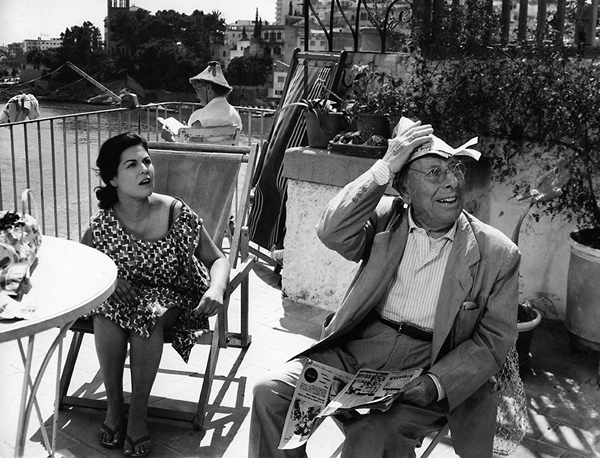The Executioner's Blues
PostED THE 17.10.2014 AT 1:00PM
The presence of Pedro Almodóvar in Lyon allows us to discover some major films of Spanish cinema such as The Executioner by Luis Garcia Berlanga, a film the audience recently discovered, between laughter and disbelief…

In 1963, Franco is ruling Spain with an iron fist, which he had seized control of by force twenty-four years earlier. Summary executions are still standard procedure. The Communist Julián Grimau is shot, while anarchists Francisco Granado and Joaquín Delgado will be sent to the garrots, the withers, this horrendous instrument of death, which characterizes the Spanish-style "justice" of the times. The Executioner happens to recount the daily life of a miserable little man whose (well paying) job is to "tighten" (one last time) the screw of the condemned person, until death ensues, after unbearable suffering. The Executioner's financial independence allows him to move in with his fiancée and future wife…
The talent (the veritable art) of Luis Garcia Berlanga lies in his ability to make us laugh in spite of a harsh social and political landscape. The script of the great Rafael Azcona (Marco Ferreri's counterpart, who will later work with Carlos Saura) circumvents the censorship of the time with uncanny intelligence to declare his position - while we read between the sarcastic lines - against the death penalty.
Co-produced by Italy, the film introduces us to a certain Nino Manfredi, who has not yet made the great works that will define his career as a melancholy comedian.
It is difficult to find a more scathing and mockingly dark film than The Executioner. Upon its release in France, it won the grand prize of black humor - and its trophy - a miniature guillotine.
The film is based on a true story brought to Berlanga by one of his friends: an executioner having a nervous breakdown, unable to proceed with the withers execution of the accused (a woman). His colleagues only manage to calm his hysteria by giving him a powerful sedative.
The intentions of the film are obvious and apparent, which the Franco censorship nevertheless fails to catch. Only the love scenes (though thoroughly demure) and references to Germany (where the characters hope to work) concern the supervising ministry, who recommends some minor cuts to the picture.
The film is sent to compete in Venice, where it wins the critics' prize. At this point, the Spanish Ambassador in Rome gets involved; Alfredo Sanchez Bella has a reputation for being a tough guy. He proceeds to publicly condemn this "incredible tirade, not only against the regime, but against all of Spanish society." For him, everyone takes a beating: "The priests, the military, the civil guards, the civil servants, the intellectuals, the Marquis, women, men. It is the most unpatriotic movie ever made!" Who can say he's wrong?
Knowing he would not be listened to, and already sufficiently ridiculed, the diplomat later opts for a more moderate stance. In an attempt to salvage the laughable, he says, "This film is proof that, in a country as liberal as Spain, bad movies can be filmed and shown."
Franco did not like Berlanga, stating, "I already know that Berlanga is not a Communist. He's worse than that. He's a bad Spaniard. "
Carlos Gomez
